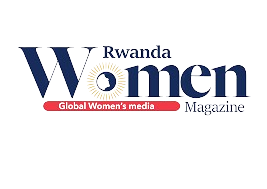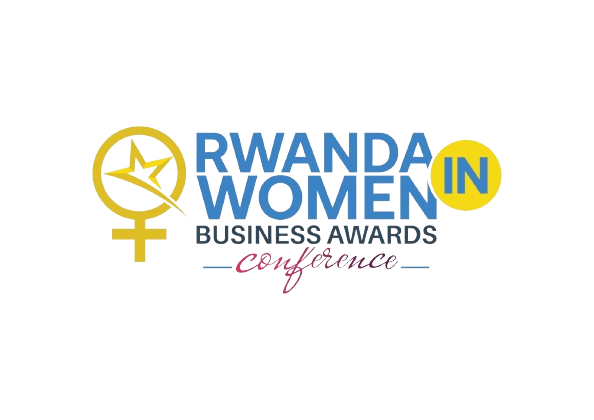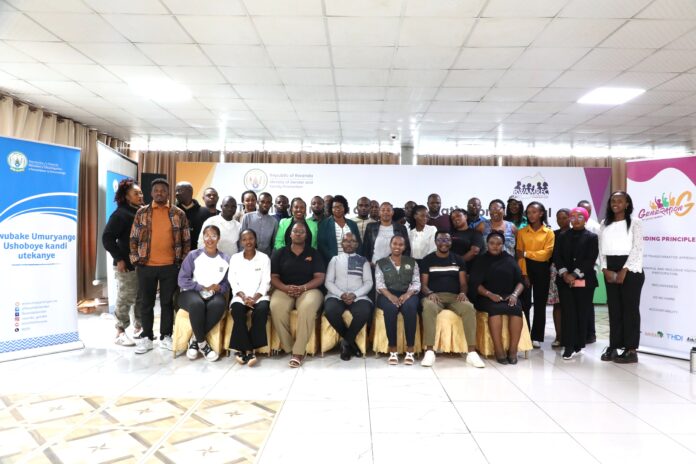From May 27th to 30th, 2025, a four-day workshop in Musanze brought together editors, media owners, senior journalists, and CSO media representatives from across Rwanda to deepen their understanding of gender equality and strengthen their capacity for gender-transformative reporting. Organized by RWAMREC under the Generation Gender (Gen G) programme in partnership with MIGEPROF, the training provided an interactive learning experience focused on key gender concepts, media ethics, the power of language, and the vital role of media in advancing gender equality.
Participants were introduced to Rwanda’s National Gender Policy and the National Transformative Strategy Engaging Men and Boys for Gender Equality Promotion, both aligned with the National Strategy for Transformation (NST2). These frameworks emphasize national and political will of the government to drive social change through transformative approaches.
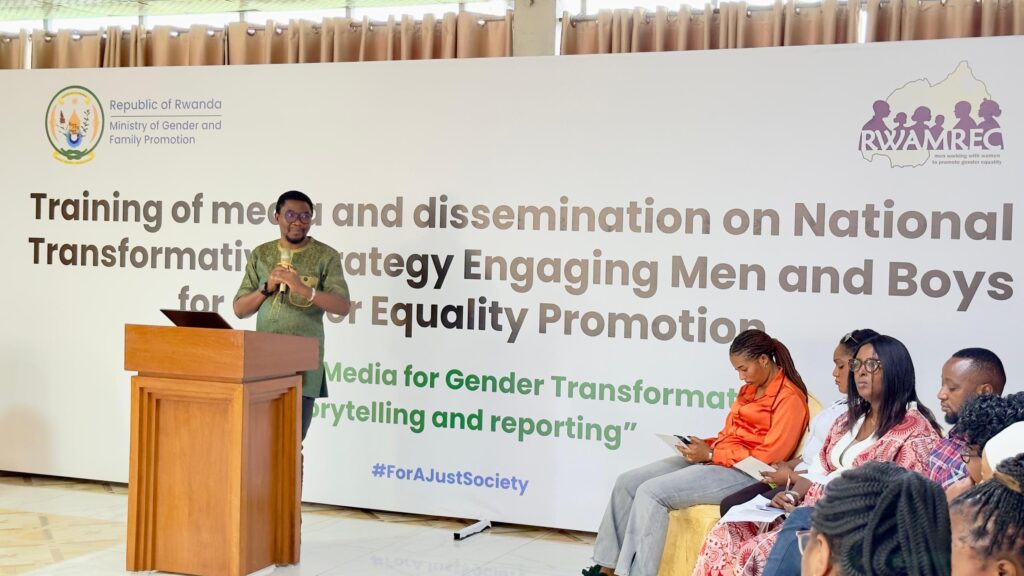
During one session, the Director General of Gender Promotion and Women Empowerment at MIGEPROF stressed the importance of addressing structural causes of inequality.
“This Gender Policy’s focus will be on addressing issues from their root causes, rather than dealing with effects, which often does not solve issues in a sustainable way,” he said.
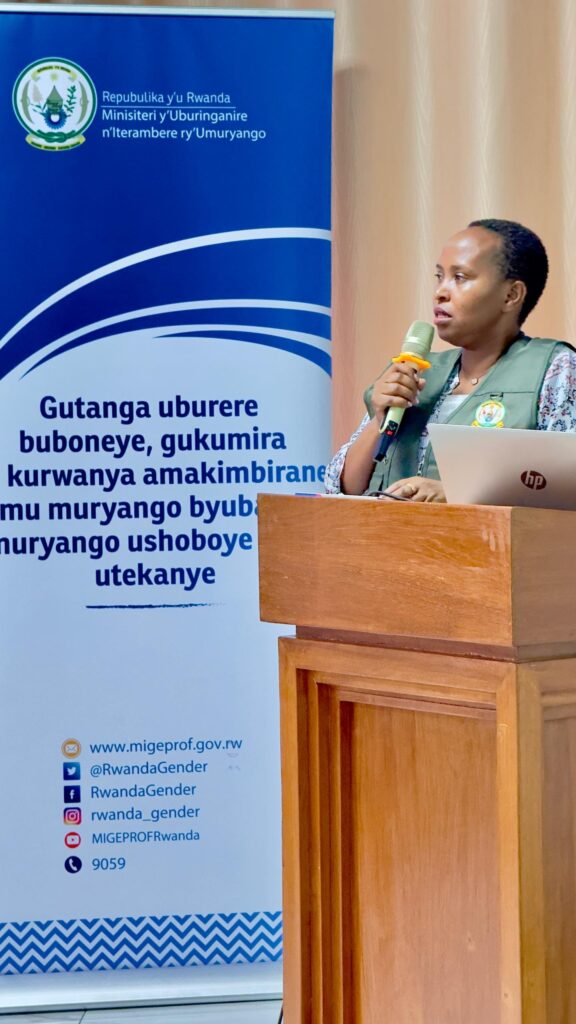
The Executive Secretary of the Gender Monitoring Office introduced the Gender Equality SEAL, a certification tool that promotes gender accountability across institutions. She called on media professionals to get involved:
“Media houses have a key role to play in achieving gender equality and should work towards earning the Gender Equality SEAL certificate.”
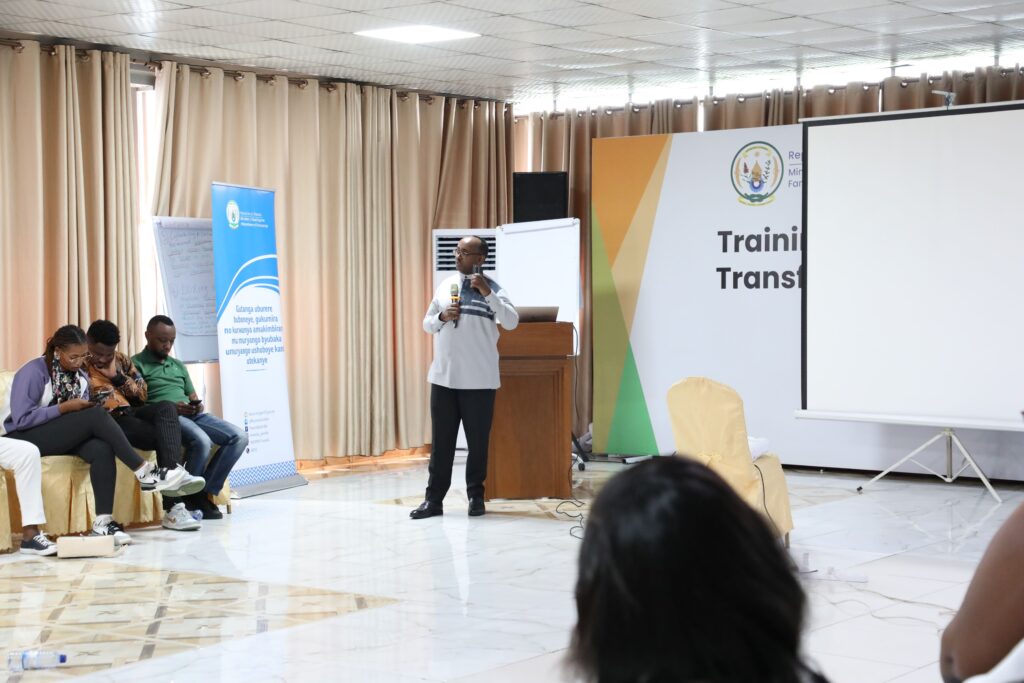
RWAMREC’s Executive Director concluded the training by encouraging journalists to begin with self-reflection and lead by example:
“Be gender-equitable megaphones. Lead by example and use your platforms to amplify transformative messages that shift mindsets.”
One core theme of the training was the power of language in shaping public perception. Participants explored how unconscious gendered language can reinforce inequality and committed to using inclusive, respectful vocabulary in headlines, interviews, and stories. They acknowledged their responsibility to dismantle stereotypes and elevate diverse voices.
A key module on news framing challenged participants to change how gender issues are covered moving beyond portraying men as perpetrators and women as victims, and instead highlighting stories of collaboration, resilience, and leadership. They also explored the differences between sex (biological) and gender (socially constructed) roles, and how these affect media narratives.
Through the “gender boxes” activity, participants examined how societal norms assign dominance and emotional restraint to men, and submissiveness to women. They pledged to challenge these expectations by portraying more balanced and empowering gender roles in their reporting.
Another session introduced participants to different forms of power; “power within,” “power with,” “power over,” and “power to”, and how these dynamics can either promote or hinder gender equality. Journalists were encouraged to reflect on how power is used or misused in both their content and newsroom culture.
The training also tackled Gender-Based Violence (GBV) and Technology-Facilitated GBV (TFGBV), including cyberbullying, stalking, and non-consensual image sharing. Participants were urged to avoid sensationalism and report on such topics with sensitivity and integrity, centering the voices and dignity of survivors.
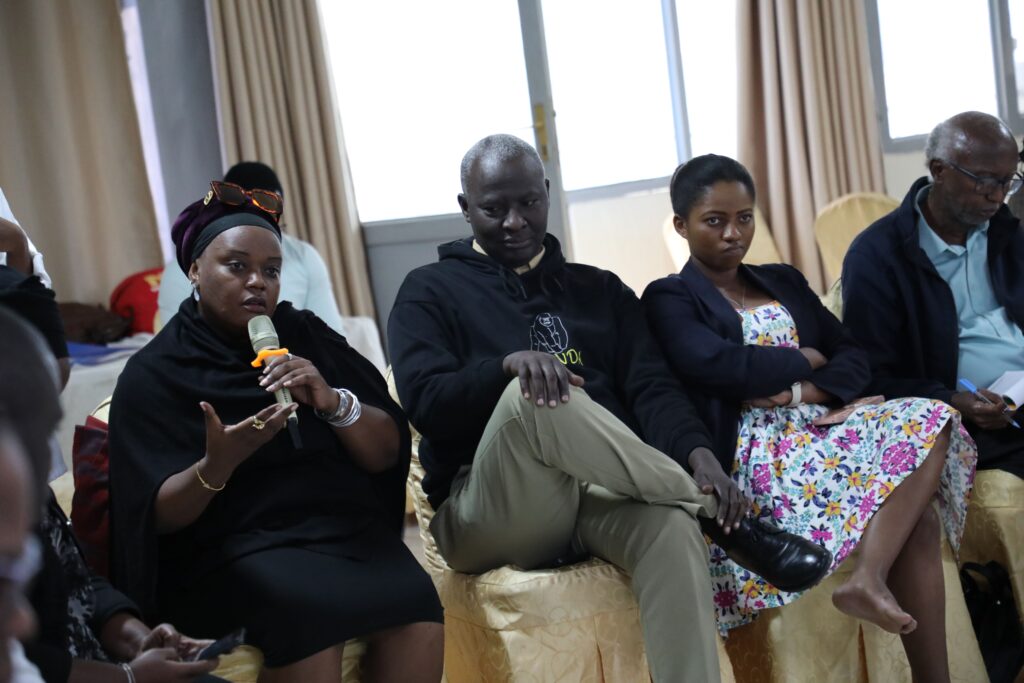
Reflecting on their experiences, participants described the training as eye-opening.
“I made the decision to train the journalists I work with, produce educational stories, and shift mindsets around gender so that my contribution is impactful and constructive,” said one.
“Now I understand what gender really means and the types of language I should avoid when reporting,” added another.
“I came to understand the role of the media in delivering accurate information to the public and how it can reinforce certain mindsets without us even realizing it. shared one more.
Participants left the training with renewed motivation to revise their editorial practices, support peers, and produce stories that inform, empower, and help build a more equal Rwanda.

